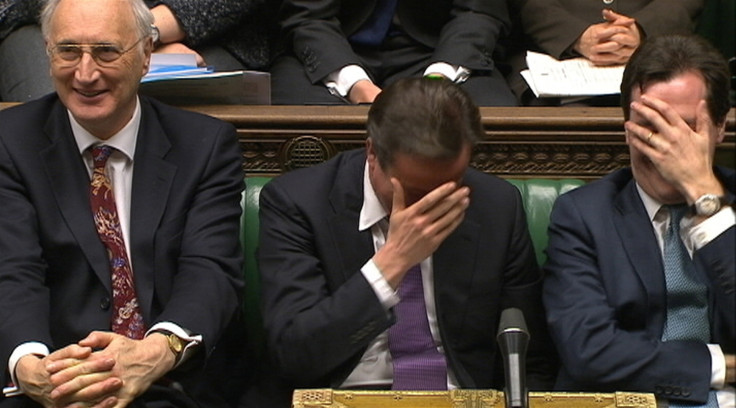Omitting Green Party from TV General Election Debate Plans 'an Error for Tories, Green Voters and Women'

The UK's main broadcasters have revealed plans for TV debates ahead of next year's general election – but one party is woefully underrepresented.
ITV, BBC, Channel 4 and Sky have agreed joint plans to broadcast three live party leader debates, which would take place next April, should they be approved by Prime Minister David Cameron.
Invitations to take part have been sent to Cameron along with Labour leader Ed Miliband, Liberal Democrat leader Nick Clegg and Nigel Farage, leader of Ukip.
[Prime Minister David] Cameron is basically not going to let Nigel Farage on without me.
Notably, the Green Party have been excluded from the plans, despite having had as many seats in Parliament as Ukip (one) and repeatedly polling with the same level of support as the Lib Dems (7%).
The party received around 1.3 million votes in the European elections, more than the Lib Dems' 1.1 million. They also came third in the London mayoral election, ahead of the Lib Dems, and ran 300 seats in the last election – just under half the available constituencies.
But today, Green party peer and member of the London assembly, Jenny Jones, said on Twitter it was "Mad not to include @TheGreenParty in the leader debates, if only to have at least one woman on the platform."
Monday's news comes despite a Green party-led campaign to press broadcasters to ensure its leader, Natalie Bennett, is included in the televised debates. A petition for the cause, targeted at the BBC's "unfair media blackout" of the party, has received more than 50,000 signatures.
The appeal of Nigel Farage
The Green Party, which complains of being represented as a single-issue party in British media, say their membership has more than trebled in 2014, and is expected to hit 20,000 in England and Wales this October.
The Scottish independence referendum also gave the Greens a boost – membership in Scotland, where the party is organised independently, surged from 4,000 to 5,600 in the week of the vote.
All this means that Bennett believes the Green Party should see the same representation in the media in the run up to the election as Farage.

It's a sentiment some believe could be echoed by Cameron, who could benefit politically from debating alongside the left-wing party by splitting the left vote and providing a foil to far-right Farage.
"There's a significant chance the debates won't happen at all", Bennett told The Guardian, regarding the news that Cameron appeared to moot "all-party" TV debates in May this year.
"But if they do, the Tories are going to push hard for us to be on at least one of them. Cameron wants us to be there as well as Ukip. Cameron is basically not going to let [Nigel] Farage on without me," Bennett said.
In the world of TV broadcasting, some political commentators have put exclusion of the Greens down to a lack of charm – its leaders, with the possible exception of Brighton Pavilion MP Caroline Lucas, do not have the same "charisma" as characters like Farage, says Politics.co.uk.
However, when it comes to political legitimacy and democracy, the broadcasters' joint decision to leave out the Green Party is being widely disputed, with Green campaigners, Tories and Labour supporters alike branding the move an error.
"It disrespects over a million Green voters", states Politics.co.uk, "and reveals the extent to which the media is influencing politics as well as covering it.
"Broadcasters are right to spread out the coverage to include Ukip, as they seek to reflect changing voting habits. But they are terribly wrong to have drawn the line there."
© Copyright IBTimes 2025. All rights reserved.




















